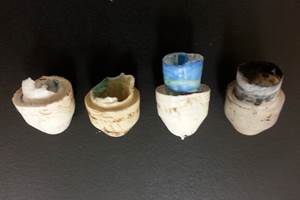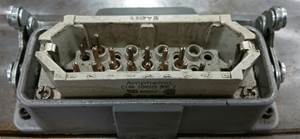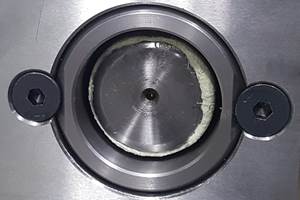SOFTWARE: More accurate quotes, faster
Cost-estimating software is taking mold quoting from back-of-the-envelope guesswork to computer-generated model.
A cost management software’s latest update includes enterprise capabilities that better predict product costs in global manufacturing supply chains; costing more product types and parts; and expanded usage across the enterprise so more resources can identify and act on cost-reduction opportunities.
aPriori, Concord, Mass. (), says its 2014r1 program allows companies to evaluate multiple cost scenarios in real time and synchronize their efforts across their design, manufacturing and sourcing organizations. The company says the key to aPriori’s accuracy and speed in creating quotations the ability to accept 3D computer-aided design files to automatically generate cost inputs.
2014r1 can also pull data that are hosted in other enterprise applications and communicate product cost among all 大象传媒 segments involved in product definition and delivery, including the import of complex engineering Bills of Materials (BOMs) from ERP, PLM and other enterprise applications.
CAD models to quotes
“One of the biggest differentiators for aPriori is that we can take a 3D solid CAD model, pretty much any 3D solid model, and use that to generate a tooling quote,” explains Rick Burke, VP of marketing at aPriori. Users enter variables like part volume, material, manufacturing process, and location of manufacture, and create a detailed cost estimate, which factors in cost components like labor and overhead.
“In addition to piece part cost, the calculation of the tooling cost is an incredibly complex challenge,” Burke said. “To take a CAD model and extrapolate out all the incredibly detailed tooling—I don’t know of any other company that can do this.”
More than just injection molding
The software has also expanded the processes it can extend that modeling to, adding reaction injection molding (RIM), structural foam molding, rotational molding, and blow molding. Mark Dignum, product management at aPriori, noted the addition of the last two processes helps boost the company’s support of fuel tank manufacturing—a bonus given aPriori’s presence in the automotive space. The program can also tackle some sheet processes, including thermoforming, vacuum forming and drape forming. “We can get a bit wider in terms of the companies we cover and the types of parts,” Dignum said.
Accounting for cycle time, more
aPriori also sought to increase the accuracy of the injection molding tooling cost estimation suite since the release of the last iteration. Specifically, the updated program has beefed up its tooling calculations, estimating cycle time for injection molded components compared to other processes, by utilizing a few key parameters like thickness and material.
“We have partnered with some higher profile customers to help us develop a tooling model where basically we’re reverse engineering tooling requests from the CAD model of finished component,” Dignum said. The program can account for special features like the number (and size) of slides and lifters, as well as how much machining will be needed to make features; required design time; EDM hours; and more.
Have you quoted a tool to Ford lately
One such “high-profile” customer was Ford Motor Co., working close with the automotive OEM’s global tooling organization. “Ford was faced with the 大象传媒 problem of getting these ‘black box’ quotes on tooling from Tier suppliers,” Burke said, “one gigantic line item for tooling, $250,000…$500,000…and they don’t know if that’s realistic so they had a big initiative to try to get better visibility into tooling.”
Burke said aPriori has been working with Ford for a couple years, eventually connecting with one of its mold suppliers, Roush Enterprises’ Global Tooling unit. Roush’s goal: faster, more accurate quoting for greater 大象传媒.
“Roush wants to drive more 大象传媒 so their motivation was, ‘We want to do the best possible job we can for our customers, so when we get an RFQ we want to respond as quickly and accurately as possible so we can win the 大象传媒,’” Burke explained.
Roush produced a webinar on how the program has helped its mold-quoting process.
Related Content
How to Start a Hot-Runner Mold That Has No Tip Insulators
Here's a method to assist with efficient dark-to-light color changes on hot-runner systems that are hot-tipped.
Read MoreHot Runners: How to Maintain Heaters, Thermocouples, and Controls
I conclude this three-part examination of real-world problems and solutions involving hot runners by focusing on heaters, thermocouples, and controls. Part 3 of 3.
Read MoreHow To Design Three-Plate Molds – Part 4
There are many things to consider, and paying attention to the details can help avoid machine downtime and higher maintenance costs — and keep the customer happy.
Read MoreWhat You Need to Know About Leader Pins and Bushings
There’s a lot more to these humble but essential mold components than you might suspect. Following the author’s tips could save much time, money and frustration.
Read MoreRead Next
See Recyclers Close the Loop on Trade Show Production Scrap at NPE2024
A collaboration between show organizer PLASTICS, recycler CPR and size reduction experts WEIMA and Conair recovered and recycled all production scrap at NPE2024.
Read MoreMaking the Circular Economy a Reality
Driven by brand owner demands and new worldwide legislation, the entire supply chain is working toward the shift to circularity, with some evidence the circular economy has already begun.
Read MoreLead the Conversation, Change the Conversation
Coverage of single-use plastics can be both misleading and demoralizing. Here are 10 tips for changing the perception of the plastics industry at your company and in your community.
Read More












